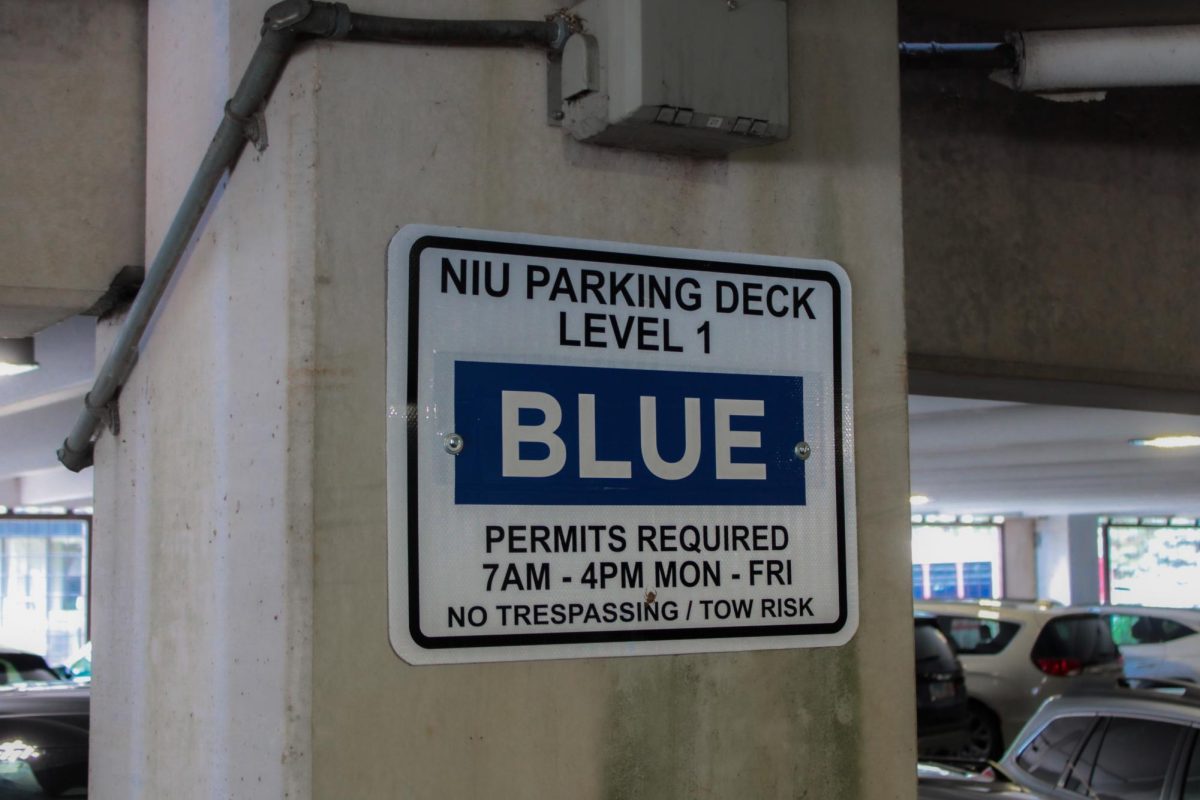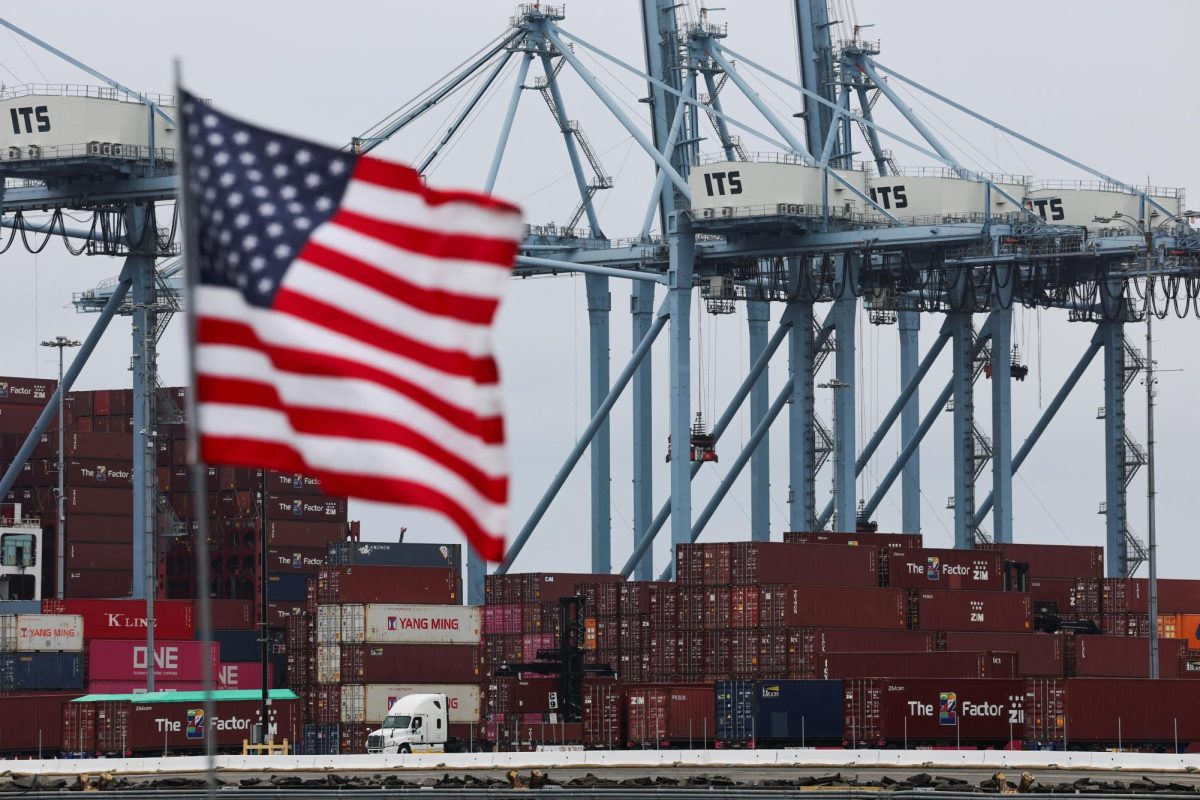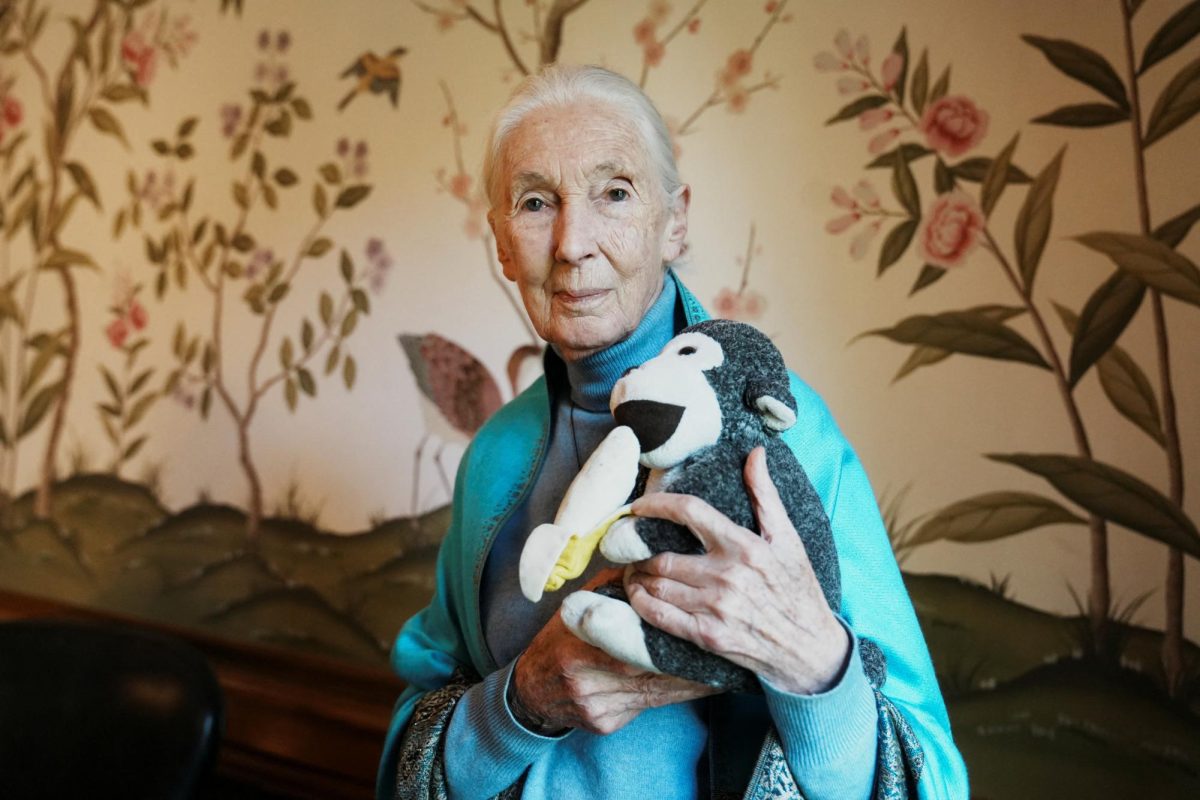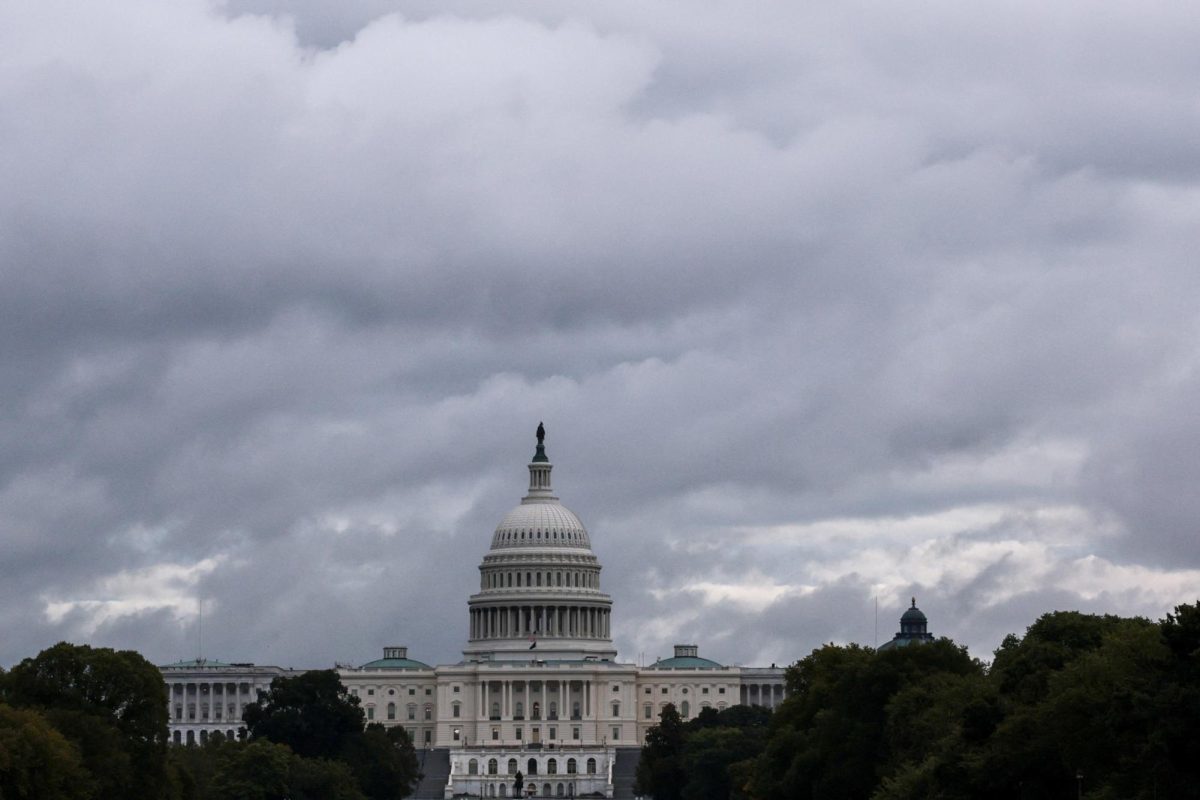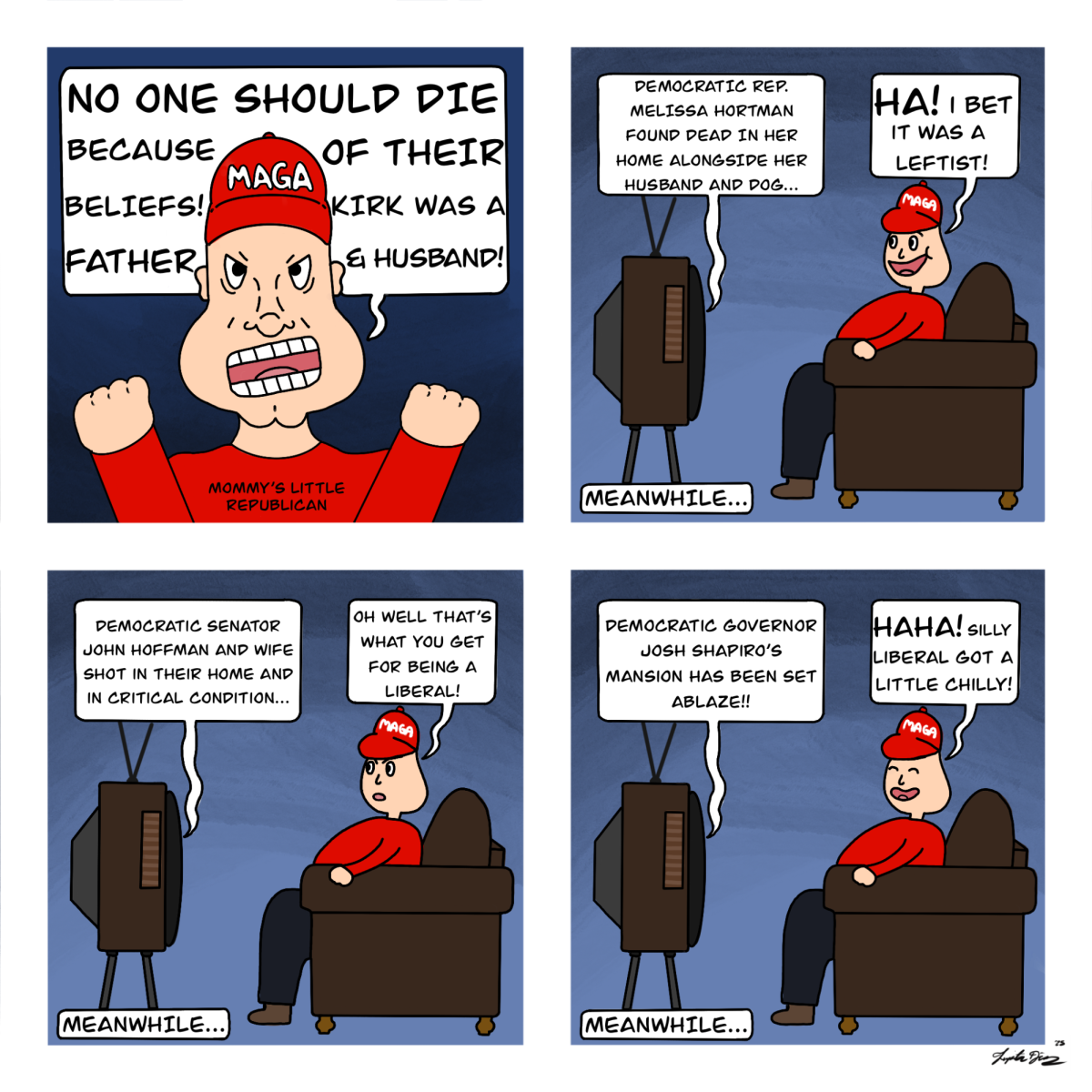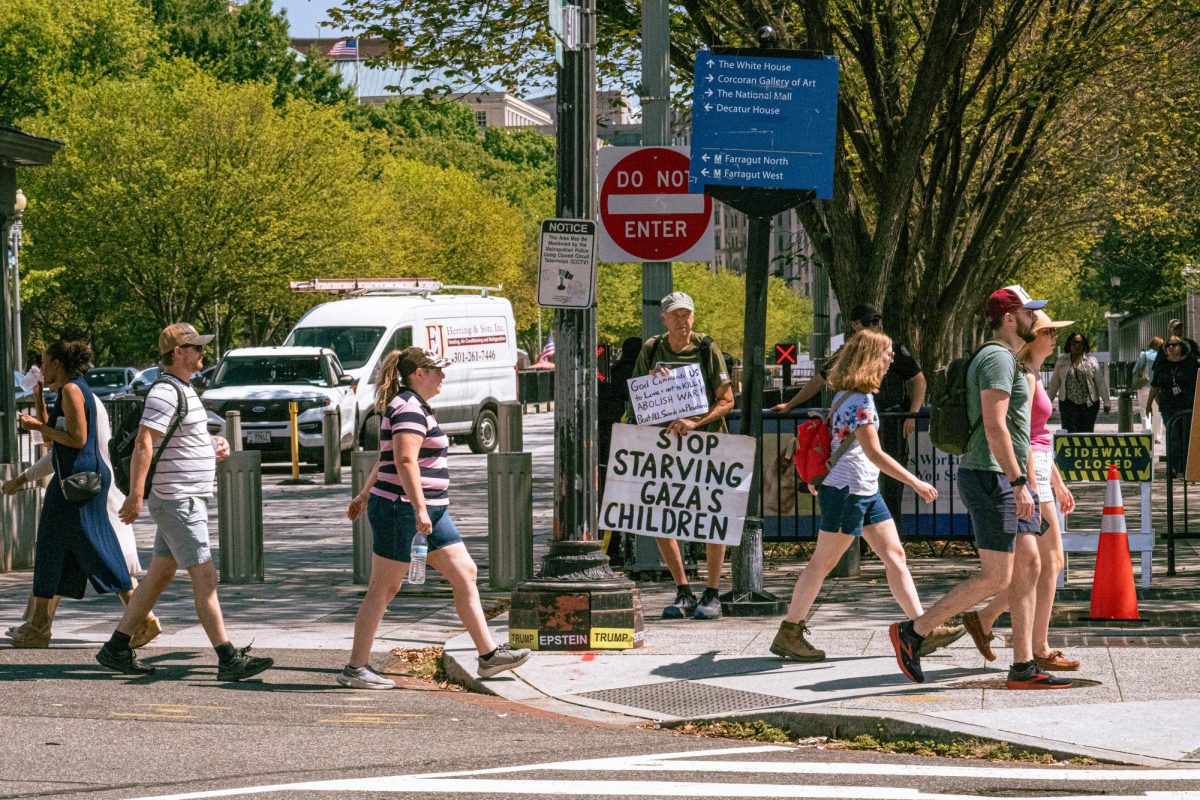I was raised in a Christian family, surrounded by people who believe in and adhere to the teachings of Christ and authority of the Ten Commandments. Yet, I worry that Christianity will lose its way if it becomes excessively involved in politics.
History has long shown that faith can be abused to elevate those with authority. Henry VIII established a new Church of England with himself as the head, so he could divorce his wife and enrich himself.
The destructive French Wars of Religion in the 1600s were caused by competition between Protestants and Catholics over influence within France.
And much more recently, the sexual abuse scandals in the Catholic church exemplified figures in religious power using that power to hide crime.
In the present day, the ruling monarch of England still holds the title of the Supreme Governor of the Church of England. The current King of England has the power to appoint archbishops, bishops and deans, though he holds less sway over the Church of England than his predecessors.
Still, in America the Founding Fathers did not want the new nation to be another hereditary monarchy, nor did they want the government of the United States to have control over the nation’s faith. The Establishment Clause, a provision within the First Amendment, prohibits state-sponsored churches, and Thomas Jefferson – a Founding Father – also wrote the influential Virginia Statute for Religious Freedom, which passionately argued for a separation between church and state.
“The early United States was very concerned about not having an established church, in the sense of a Church of England,” said Brian Sandberg, a professor of history at NIU. “This was one of the most radical parts of the American Revolution, was stripping royal power, not only from being head of the state, but also being head of the church and effectively head of all of society. So the King of England today is literally the head of state, but also the head of the Church of England.”
Though they limited the power of faith, the Founding Fathers were religious themselves; doing away with Christianity completely was unthinkable to them. Yet, they also could not elevate Christianity over other religions within America; doing so would be antithetical to their desire to have no established church.
In the spirit of freedom and equality, their solution was to permit all religions in the U.S. under the First Amendment, but mandate none of them. The First Amendment also grants the freedom of speech, and some politicians use both freedoms to charge their speeches with religious rhetoric.
“There are some politicians who use religious rhetoric in order to connect with a certain demographic group, church group often, and sort of say, ‘Hey, I’m one of you!’ you know,” Sandberg said. “So they’re seeking out votes by seeking a common connection with the group the way politicians try to, you know, connect with, you know, labor groups and small business groups and high tech groups and whatever different constituencies you want to think about.”
So, Christians are another demographic that politicians appeal to and are free to appeal to. Still, I feel concerned about the prevalence of Christian influence in the government, especially within the Republican party in light of their victories in the Senate and Donald Trump winning the presidency.
For instance, shortly after Trump was declared the victor of the 2024 election, he delivered a speech that emphasized Christianity.
“Many people have told me that God spared my life for a reason. And that reason was to save our country and to restore America to greatness,” Trump said.
References to God and His will can carry weight with Christian voters in particular.
And yet, the U.S. has a wide variety of religions, such as Judaism, Islam and Buddhism, as well as many denominations of all these religions. Moreover, there are many atheists within the U.S.
This is all to say that while Christianity is the major religion of the U.S., it is not the only group that is affected by political action concerning religion.
Women’s reproductive rights is one such issue that requires political action to address and that religious groups often weigh in on. Christians are generally in favor of banning abortion, while others argue it is a medical procedure that saves lives.
While Trump has stated that he will not support a national abortion ban, there are few members of his party who agree with him on this matter, and they have the ability to override his objections should they rally enough support from the Democratic Party. Such a ban would impose a Christian value on everyone else.
Such regulations would be wrong; no religious group should be able to force others to live a certain way. A universal abortion ban may appeal to Christians and other religious groups, but it will drive a permanent wedge between these groups and those who support abortion rights.
Similarly, Christians should be allowed to pray in school, so long as every other religion is given the same treatment, and so long as atheists are allowed to abstain. No one should feel that they are strange because of their beliefs, or that they are not allowed to practice their faith because another has deemed their practices wrong.
Every privilege Christians have should be extended to everyone else, including atheists. Every restriction should be carefully considered, to understand if it unfairly favors or restricts religious groups.



